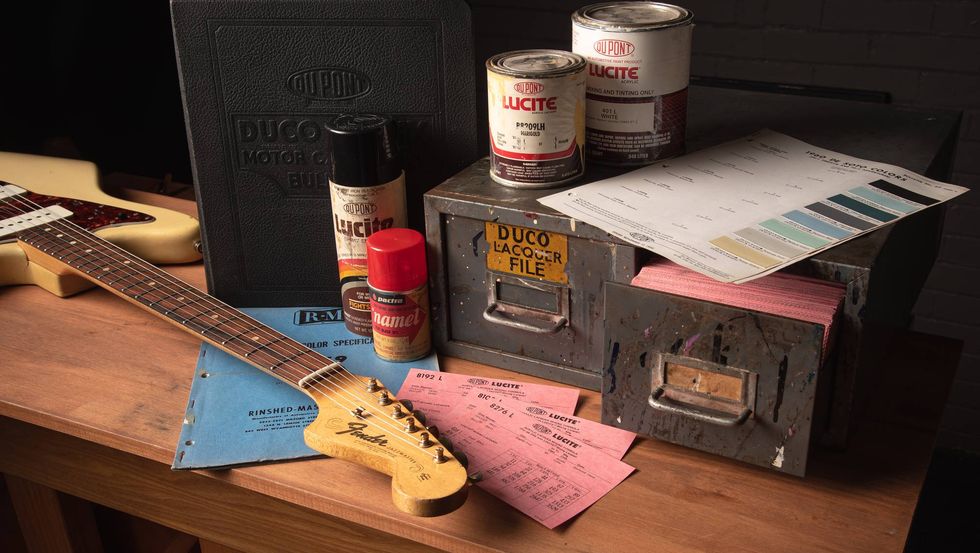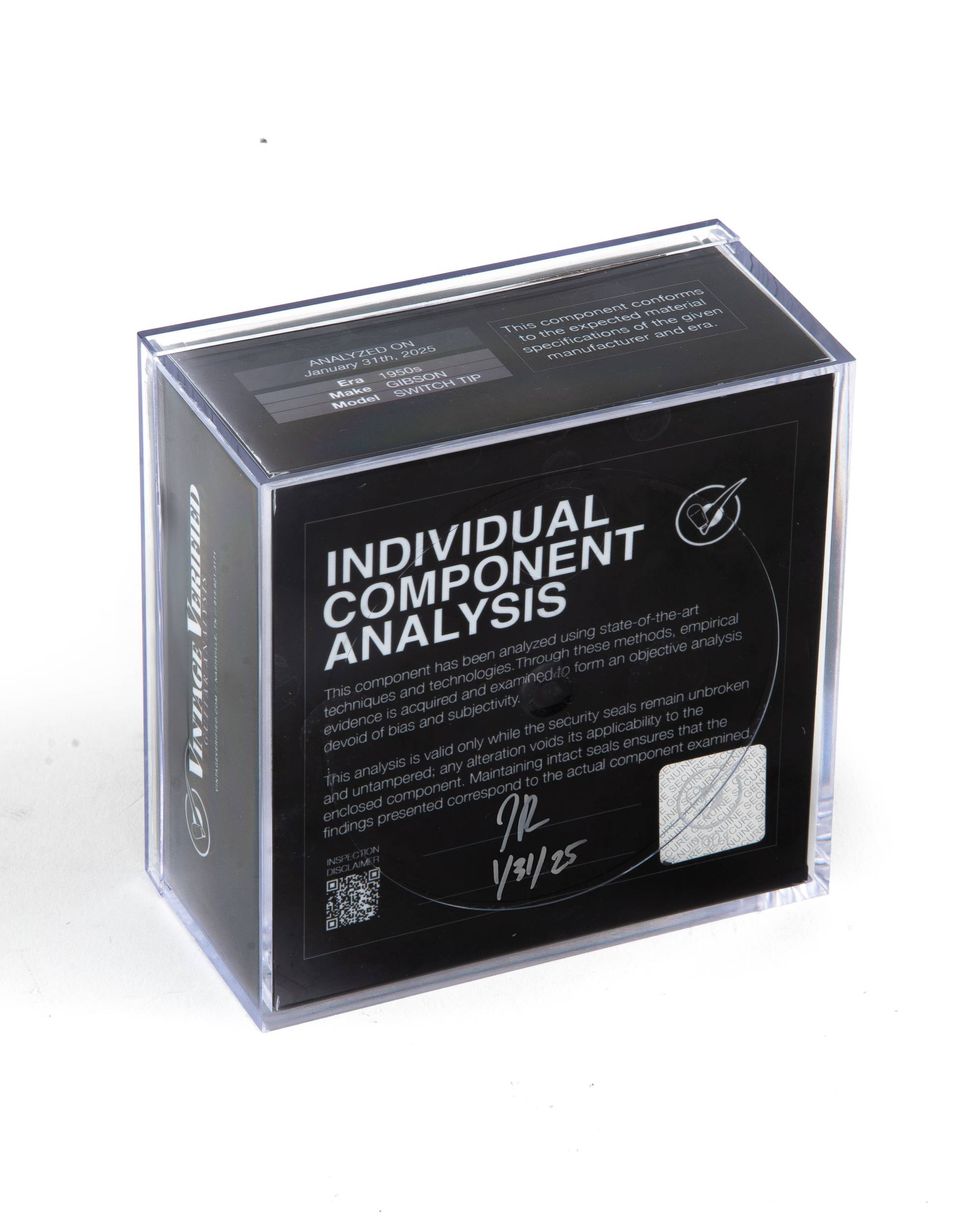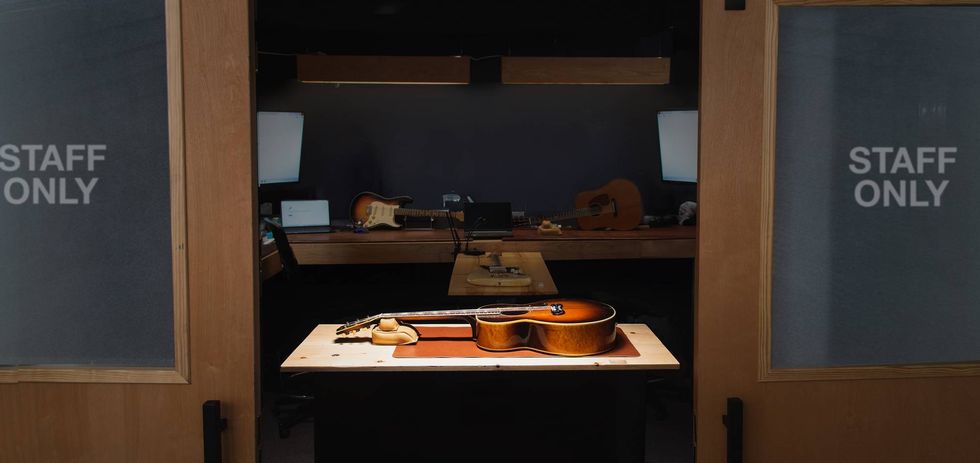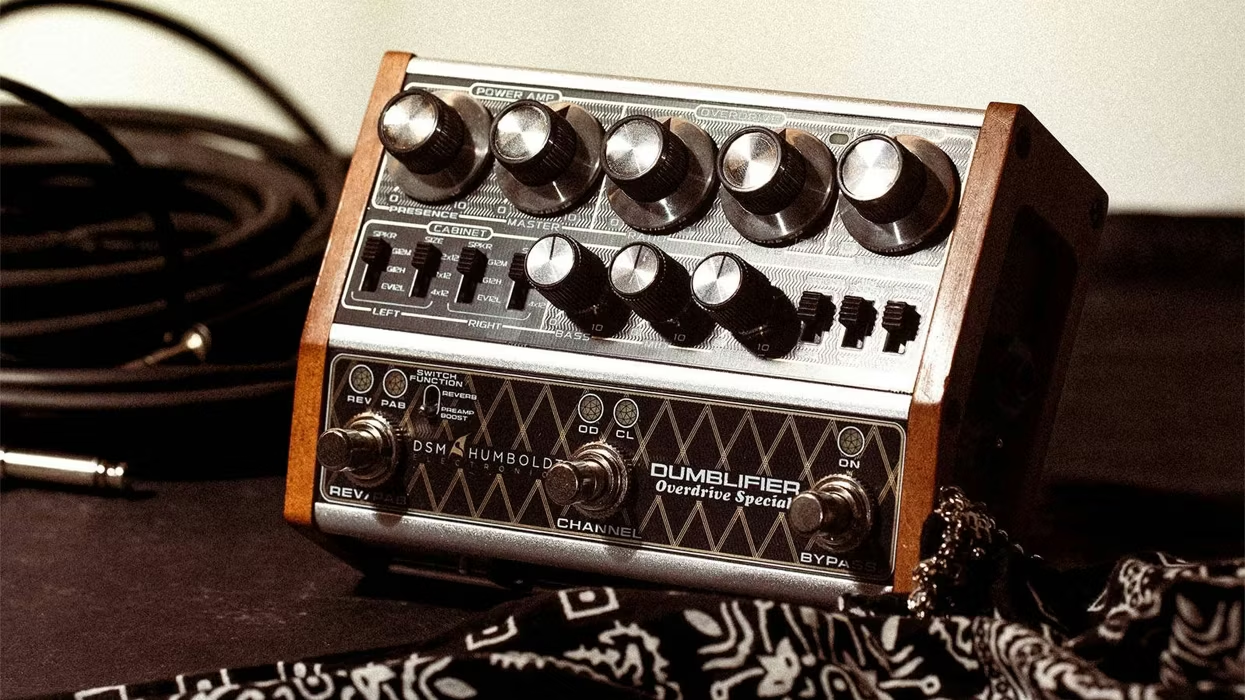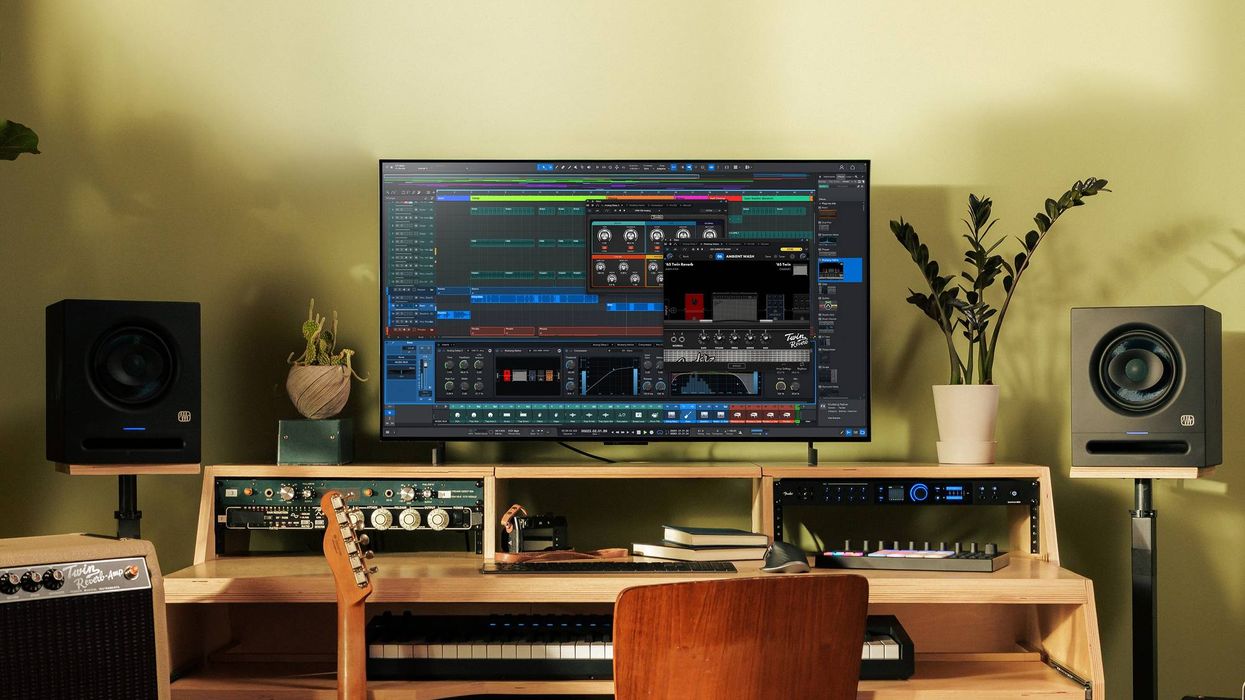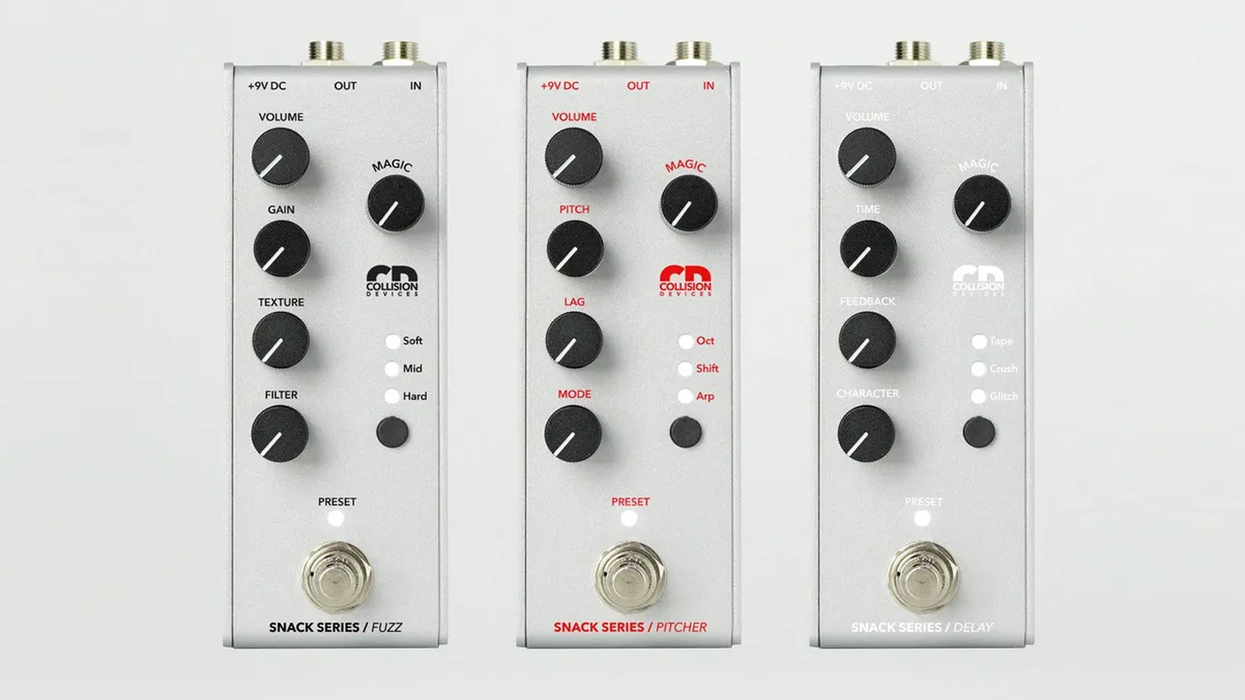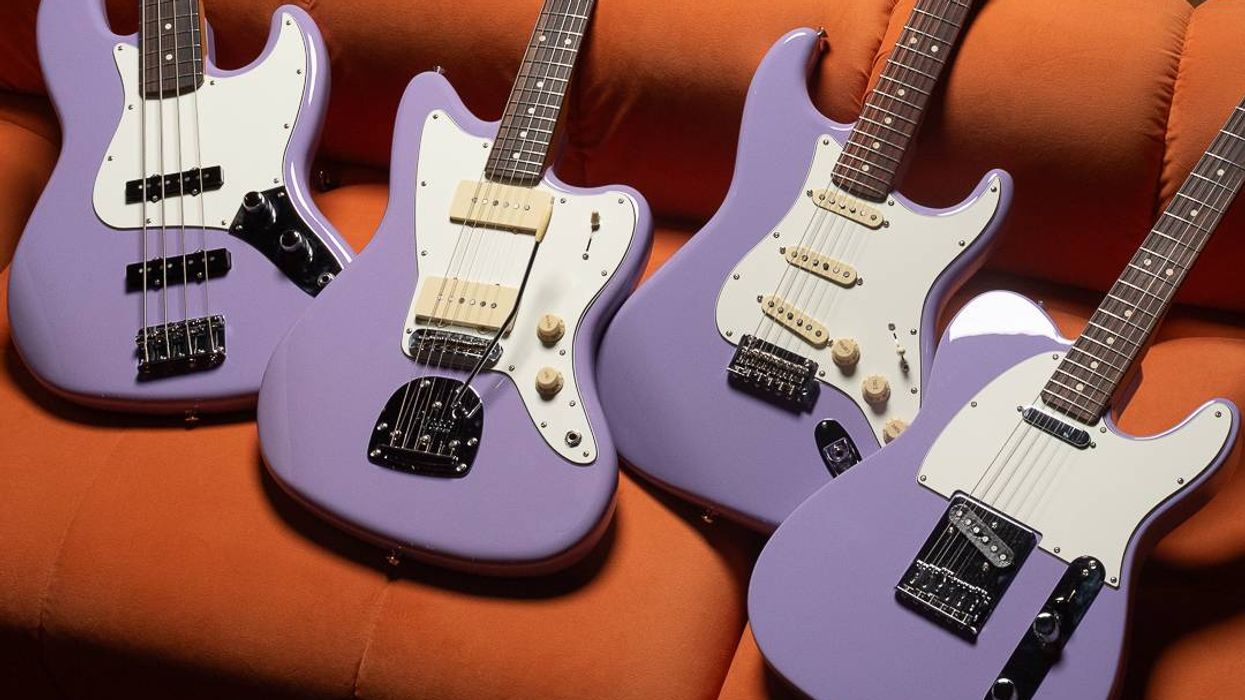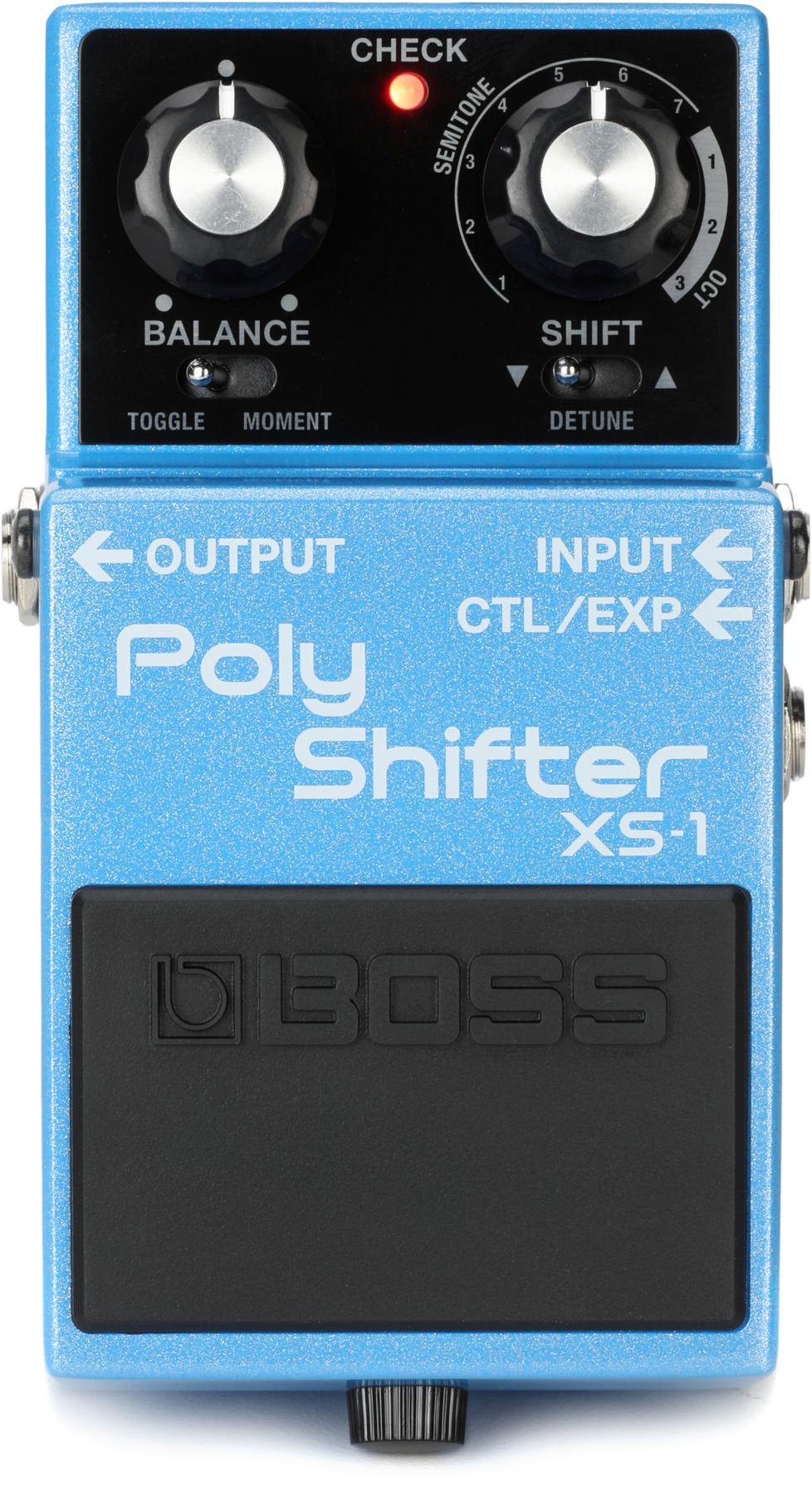It would be hard to find an effect more polarizing than the envelope filter (aka auto wah). For many funk-minded and jam-oriented players, its quacky, percussive filtering effect is indispensible. For the funk and jam averse, envelope filters might as well be a stompbox crime against humanity.
Yet this binary view of the envelope filter ignores much of the device’s potential. Carefully selected settings, a lyrical, dynamic playing approach, and crafty integration with effects you probably already use can take an envelope filter well beyond cliché auto-wah textures. Backwoods’ Blackwater envelope filter delivers classic auto wah sounds with style and aplomb. But it’s musicality and agreeable relationship to other effects make it much more than a one-trick funky duck … er, pony.
Swamp Thing
The Blackwater Filter is a simple, stout, and utilitarian item—just two knobs, a toggle switch, and a quiet relay footswitch. The pedal’s innards are relatively simple too. The two shielded in/out jacks sit just below the cluttered, but well-ordered circuit board, which occupies less than half of the space inside the enclosure. The space that might otherwise be dedicated to a battery compartment sits empty: The Blackwater only runs on 9V DC power.
The Funky Road Less Taken
Most folks in the market for an auto wah usually want one for its most familiar applications: Bootsy Collins’ vowely bass tones, Jerry Garcia’s Shakedown Street-era lead textures, and the duck quack punctuation an auto-wah can lend to funk rhythm tracks. The Blackwater excels in these sonic environs.
For those not yet in the know, an envelope filter is activated by changes in input volume, so a well-designed filter will be very responsive to pick dynamics and volume changes. The Blackwater is wonderfully sensitive to both. Like just about any envelope filter, low guitar volume confuses the Blackwater circuit to some extent—resulting in clipped signals and squashing the dynamic response that is key to making it work—so it’s best to leave your guitar volume wide open and pay attention to your picking intensity.
In clean setups (I used a few different Fender guitars and amplifiers), it’s remarkable how many expressive colors you can get by manipulating the range dial and the high/low filter switch, and using various combinations of single-coils. The high-pass filter setting delivers killer variations of the snappy, super-funky tones most identified with auto wahs—adding heaps of funky attitude to the simplest pentatonic lead. With the range knob all the way clockwise, the filter emphasizes high peaks, and a Telecaster bridge pickup in this setup conjures the coolest (some might say unholy) imaginable unions of Bakersfield sting and boulevard-cruising funk tones.
The most overtly filtered tones come from the high-pass filter, and you get the best combination of low-end heft and treble definition with the range knob in the 11-2 o’clock zone. At these settings, the way the filter processes a given note’s harmonic spectrum is fascinating—imagine hearing a single Telecaster note bloom from bassy primordial mud to a day-glo sparkler in the short duration between attack and decay. (Sustain? Let’s just say there isn’t much.)
Ratings
Pros:
Strong, vocal filter voice. Excellent pick sensitivity.
Cons:
A band-pass filter would be nice.
Tones:
Ease of Use:
Build/Design:
Value:
Street:
$149
Backwoods Music Blackwater
backwoods-music.com
Using the neck pickup or backing off your guitar tone mellows some of the peaks in this setting, which is great for languid leads or spacious, improvised chord progressions. Want to add an even more surreal touch to filtered chords with the Blackwater? Try a little volume swell as you hit the strings. It will blunt the high resonant peak but maintain the vowel-like taper, which sounds extra cool with a long delay.
The low-pass filter is a little less intuitive, a bit more moody. The extra low end favors slow, bubbling leads and chords over sassy, fast funk flurries. But these sounds can also make simple Stax-style riffs on the lowest strings sound extra funky, especially if you tune your guitar down a step or two. In fact, if you roll the range all the way counterclockwise with the low-pass filter on, you can effectively turn your detuned 6-string into a cool bass/baritone hybrid.
The Blackwater can profoundly transform a fuzz solo too. Placed out in front of a silicon Fuzz Face clone, a phaser, and a digital delay, the Blackwater’s envelope effect was mesmerizing—a sci-fi, slo-funk stew of Eddie Hazel and Ernie Isley that turned a rather ordinary crying blues solo into a heavy-as-hell, sad-tripping, space-funk sojourn.
The Verdict
The Backwoods Blackwater is an expressive, dynamic little filter effect. And the same sonic and musical properties that make it an excellent envelope filter for traditional auto-wah applications also make it a very hip addition to any texturalist’s pedalboard. The Blackwater’s ability to mix with fuzz, delay, phase, and flange give it the capacity to make those effects (and even the most cliché riffs and tricks you might associate with them) much more expressive. The range control has a very wide throw that can significantly reshape the performance of either filter. And the filters themselves add deep, rich, vocal, and organic nuance to an effect that, for the most part, is anything but subtle.
There are certainly less expensive envelope filters out there, but there are many more expensive ones that don’t do a whole lot more. (A band-pass filter may be the Blackwater’s only notable feature omission.) At around 150 bucks, the Blackwater occupies a sweet spot where value, expressive potential, and musical character come together. It’s a great platform for uncovering the many surprises this underrated and often misunderstood effect can deliver.
Watch the Review Demo:









